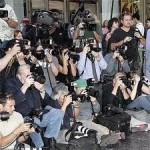Lack of balance, trivialisation, inaccuracy, failure to pursue the truth – the complaints are recycled in every media training session. Here are two wonderful articles that tap into that frustration. One you may have caught this week in The Economist:
“…political journalists aim to look high-minded by making both sides look bad. I think the motivations are far more trivial. Balance is easy and cheap. In political journalism, a vitriolic quote from each side and a punchy headline is all that is needed to feed the news machine.”
the other by Australia’s own Barry Jones:
“…politics has been reported as a subset of the entertainment industry, in which it is assumed that audiences look for instant responses and suffer from short-term memory loss. Politics is treated as a sporting contest, with its violence, personality clashes, tribalism and quick outcomes.”
Read more: http://www.smh.com.au/opinion/politics/stupidity-is-on-the-rise-in-our-age-of-enlightenment-20120808-23uiq.html#ixzz23CYWf14V
They are worth a read if you have a spare minute. They pose a problem….
The solution? One of course is to focus on social media, and so by-pass the fourth estate altogether. And increasingly that is a wonderful broadcast option. And if you want to receive more balanced information, how about using Apps like News360 and Zite which tailor your news from a myriad of sources, according to your interests.
But here’s the conundrum: while social media helps us as individual companies with the solution, it is also the root cause of the problem. Politicians and journalists have to be more knee-jerk and more outrageous and sensational to win in a news cycle that’s measured in minutes. Romney may be a deep person – but it’s the one-liners that are making headlines.
Shallow wins; deep loses. Is there a third way? Suggestions?





